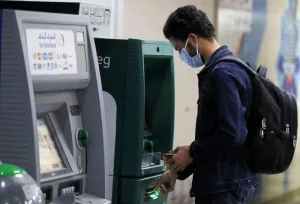In May 2019, the Central Bank of Egypt (the “CBE”) published the framework of its fintech regulatory sandbox (the “Framework”) for its innovative financial technology lab (the “IFTL”). This month, the CBE announced its regulatory sandbox soft launch and invites financial technology (“FinTech”) startups and companies specializing in electronic know-your-customer solutions to apply for its first pilot cohort.
It should be noted that the main purpose of a regulatory sandbox is to encourage innovations by providing a testing ground for new innovative services and products.
We will briefly present the different rules outlined in the Framework, its eligibility requirements and timeframes.
The main principles and purposes of the IFTL
The IFTL aims to (i) encourage new fintech solutions in the Egyptian financial and banking sectors, (ii) help the CBE identify regulatory challenges and obstacles facing the fintech industry in Egypt, (iii) bolster investments in the fintech industry and (iv) contribute to the CBE’s literacy on fintech to help it make effective and sound policy legislations.
Having said this, the Framework explicitly states that applicants cannot circumvent existing rules and regulations especially those related to know-your-customer requirements, customers’ data protection and anti-money laundering and counter-terrorism rules when testing their products and services at the IFTL.
General guidelines of the IFTL’s system
The IFTL has a consecutive cohorts system. Each cohort lasts for a period of 6 months. The IFTL accepts applications from companies providing financial technology services. However, priority is given to companies providing financial technology services in collaboration with financial institutions. Applicants should have enough technical and financial resources to complete their tests at the IFTL. The IFTL accepts a limited number of applications by cohort.
The application stage
The application process consists of five consecutive stages. At first, the CBE announces the opening of the application process on the CBE’s official website, the Fintech Egypt Hub and social media. Applicants should respect the requirements and the conditions set by the CBE and listed in the Framework. Each cohort has a theme determined by the CBE. Applications which do not comply with the theme of the cohort will not be accepted.
The CBE then starts to evaluate all completed applications in light of the Framework and the existing rules and regulations within 21 working days. Said period may be extended under certain conditions. Short listed applicants have to ensure that they have duly informed volunteer consumers and that they have obtained their formal consent.
Following the evaluation period and the preparation for the testing period, accepted applicants can start testing their products or services for a period of 6 months.
The final stage is the exit stage. The applicants have two options to exit the IFTL: (1) a natural “graduation” from the IFTL, or (2) an early exit before the end of the 6-months period.
A final report, which must include specified elements indicated in the Framework, must be submitted by the applicants to be evaluated by the CBE.
Success of the experiment
In case of a successful IFTL experience, applicants must prepare to partially or fully deploy the service or the product in the Egyptian market.
Market reaction
Ayman Hussein, Deputy Governor of the CBE said: “Egypt has the success factors that have made it a pioneer in the financial technology sector, including the strong demand for financial services, the banking sector, telecommunications companies, electronic payment companies, insurance companies, regulators, incubators, business accelerators, investors and SMEs.”




